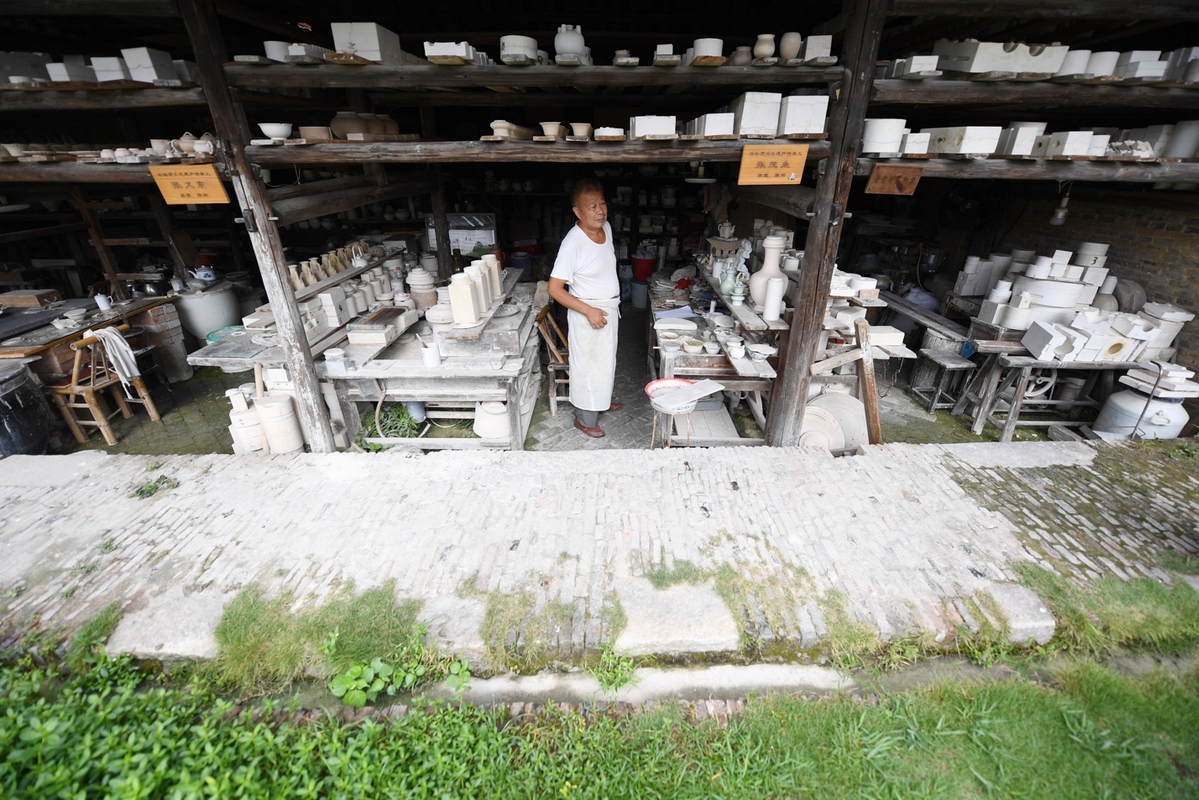Porcelain craftsman seeks to pass down treasured cultural heritage


Seniors' top fear of aging might be running out of money or living alone, but for 68-year old Zhang Maosheng, his biggest fear is not having found an apprentice to pass down his craft of making porcelain.
Born and raised in Jingdezhen, known as China's ceramic capital, Zhang has been making porcelain since he was a teenager.
"At that time there was fierce competition among my peers. Everyone wanted to learn more skills from our masters. We even volunteered to help with our master's housework to impress him, so that he could teach us more," Zhang said.
"But things have changed now. Learning the craft of porcelain making is a time-consuming and labor-intensive task that requires a high level of patience, but profits cannot be guaranteed. Not many people are willing to learn and make a living through hand-made porcelain," Zhang said.
Zhang is certified as an inheritor of China's intangible cultural heritage and works as a designer and craftsman for the Jingdezhen Ceramic Culture Tourism Group. In his studio, rows of porcelain are waiting for firing.
"This is called a 'lying baijiu (colorless Chinese liquor) pot'. There's a trick inside the wine pot to make sure you can switch from pouring baijiu to pouring water to your cup when you don't want to be drinking but are still urged to do so as a social courtesy," Zhang said as he presented his latest work with a sense of pride.
"I don't see making porcelain as a job. I enjoy making porcelain and will continue doing it till I can't," Zhang said.
Zhang is not the only one who worries about finding apprentices to learn the skills to make porcelain. With the rapid development of mechanization, handcrafted products are seeing less market demand due to higher costs and a longer time frame to make them compared with products made by machines.
In response, Jingdezhen is stepping up efforts to attract startup teams and young porcelain designers to support the industry.
Supportive measures include both online and offline free exhibition and sales platforms for selected individuals or teams. About 10 percent of those selected individuals or teams on the offline platform, whose sales performances are ranked at the bottom compared with their peers each month, will no longer enjoy those benefits.
The platform, called Yi Space, now incubated about 15,700 young porcelain-making or selling personnels for its offline sector, with total sales reaching nearly 10 million yuan ($1.47 million).
For Yi Space's online sector, porcelain-makers or s sellers and teams can enjoy free rooms and live-streaming equipment to exhibit and sell their products online on about 50 short-video platforms, including Taobao, Kuaishou, and Douyin.
























